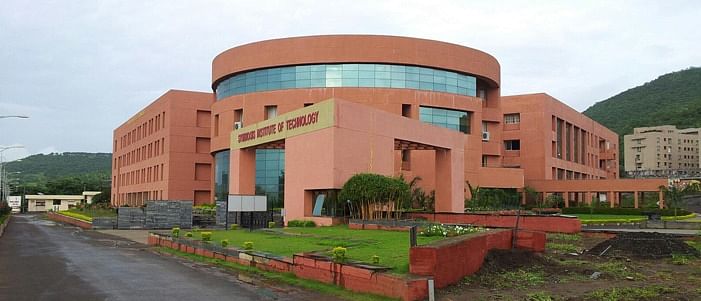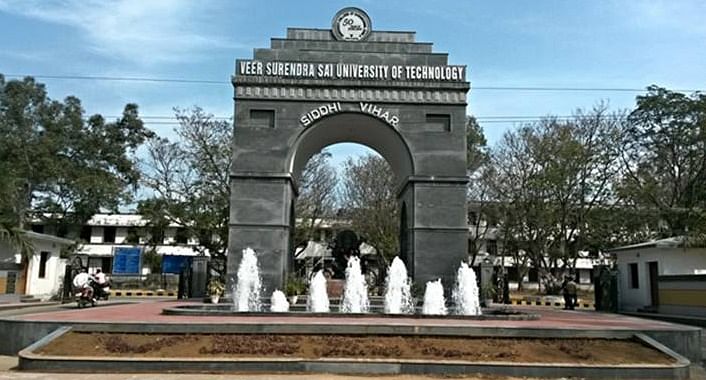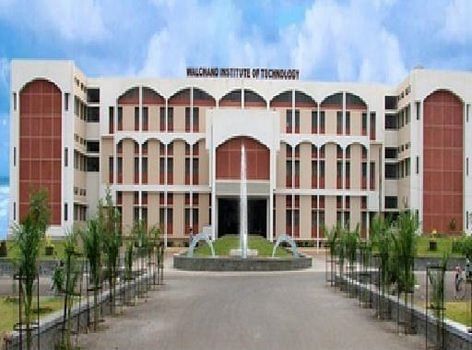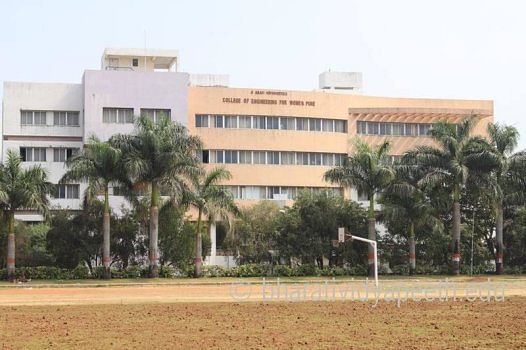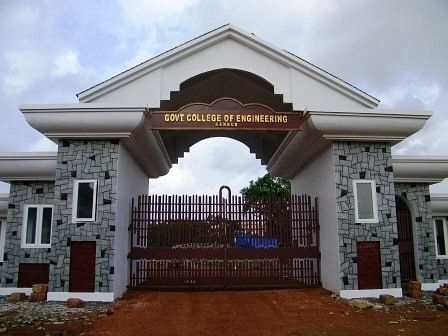B.Tech Electronics and Telecommunication Engineering: Course Details, Eligibility, Fees, Admission

B.Tech Electronics and Telecommunication Engineering is a four-year-long undergraduate course that deals with the study of fundamental electronics, communication protocols, technologies, software, and essential subjects for a career in telecommunications. Students completing this course have many job opportunities and can work in the telecom industry and top companies in multiple fields. Some of the titles graduates start with are electronics engineers, VLSI engineers, network engineers, design engineers, and communications engineers.
Table of Contents
- About B.Tech in Electronics and Telecommunication Engineering
- Eligibility Criteria for B.Tech Electronics and Telecommunication Engineering
- How To Get Admission for B.Tech Electronics and Telecommunication Engineering?
- Popular Entrance Exams for B.Tech Electronics and Telecommunication Engineering
- Top 10 B.Tech Electronics and Telecommunication Engineering Colleges in India
- Fee Structure for B.Tech in Electronics and Telecommunication Engineering
- Syllabus and Subjects for B.Tech in Electronics and Telecommunication Engineering
- Why Choose B.Tech in Electronics and Telecommunication Engineering?
- Scope For Higher Education
- Salary of a B.Tech Telecommunications Engineer
- Career Options After B.Tech Electronics and Telecommunication Engineering
- Skills That Make You The Best Telecom Engineer
B.Tech Electronics and Telecom Engineering Course Details
| Degree | Bachelors |
| Full Form | Bachelor of Technology in Electronics and Telecommunication Engineering |
| Duration | 4 Years |
| Age | 17-23 |
| Minimum Percentage | 50-60% |
| Average Fees | ₹1 - 2 LPA |
| Similar Options of Study | B.Tech (Electronics & Communication Engineering), B.Tech (Electronics & Instrumentation Engineering), B.Tech (Electronics Engineering) etc. |
| Average Salary | INR 2.4 LPA [Source: Payscale] |
| Employment Roles | Civil Engineer, Structural Engineer, Structural Design Engineer, Project Manager, Design Engineer, Construction Manager, Project Engineer, Safety Officer, etc. |
About B.Tech in Electronics and Telecommunication Engineering
Electronics and Telecommunication Engineering is one of the application based disciplines of electronics engineering. According to Wikipedia, “Telecommunications Engineering is an engineering discipline based on electrical and computer engineering that supports and enhances telecommunication systems.”
Electronics and Telecommunication Engineering subjects such as analog electronics, linear integrated circuits, network analysis and synthesis, and digital signal processing provide the students with adequate knowledge to design , test, and maintain communication systems.
The job scopes for graduates of this course are plenty. Electronics and Telecommunication Engineering graduates work in various job profiles and fields that have a direct impact on public affairs and economy .
Some of Essential tools and technologies used by electronics and telecommunication engineers:
- LabVIEW
- Microcontrollers
- Computer-aided Design Software
- VLSI Designing
- Modelling Softwares
- Communication Module Simulator
- MATLAB
- Networking
Eligibility Criteria for B.Tech Electronics and Telecommunication Engineering
For getting admission into B.Tech Electronics and Telecommunication Engineering, Aspirant should have passed 10+2 with PCM (Physics, Chemistry, and Mathematics) as compulsory subjects. Students should have secured a minimum aggregate of 50% - 60% in their board exams. Students should clear one of the common engineering entrance exams such as JEE. The minimum age to apply for the course is 17 years.
How To Get Admission for B.Tech Electronics and Telecommunication Engineering?
Admission to the B.Tech Electronics and Telecommunication Engineering course is done via two quotas. Students are taken in through a merit quota based on their entrance exam scores. The eligibility cutoff differs from one university to another. Students can also get admissions via management quota often which seats are limited in numbers. The course falls under the umbrella of the B.Tech degree and thus follows a similar admission process. Though the admission process varies from one college to another, below mentioned are the steps that one commonly goes through to get admission:
How to Apply?
Considering the COVID-19 situation, several colleges have started to take admissions online. Students need to visit the college’s official website and fill in with necessary details for admission. For offline registration, the students need to visit the college, fill out the application form and submit the required documents.
Selection Process
Upon successful acceptance of the application, there may be a final round of interview or group discussion. This step differs from one college to another.
Read More on B.Tech Admission
Check other important B.Tech Courses
Popular Entrance Exams for B.Tech Electronics and Telecommunication Engineering
Electronics Engineering is one of the highly sought after courses by students in India. The basic screening process is done using national and state-level entrance exams in India. The students who have completed their Class 12 with physics, mathematics, and chemistry as compulsory subjects are eligible to appear for these entrance exams.
The entrance exams for B.Tech Electronics and Telecommunication Engineering are the same as other engineering specialisations. Students can select the colleges they would like to get admitted to based on their entrance exam scores.
After the exam , a merit list of qualified applicants is prepared based on the cutoff ranks. Students are then invited for an personal interview or counselling session by the respective university or college. Post the interview , graduates are allocated seats and the post admission process commences.
Some of the most popular engineering entrance exams are listed below:
A Quick Glance at the B.Tech Electronics and Telecommunication Engineering Entrance Exams
Eligibility criteria for the entrance exams mentioned above vary depending on their conducting body. The following are a few similarities between the popular entrance exams:
- The exam pattern typically tests logical reasoning and problem solving capability..
- The question paper consists of objective questions from Physics, Mathematics, and Chemistry.
- The exam duration vary from 2-3 hours depending on the exam being attempted.
- The exam may be conducted either online or offline.
- The syllabus, mode of exam, question pattern may change according to the university/conduction body.
Top 10 B.Tech Electronics and Telecommunication Engineering Colleges in India
Below is the list of the 10 best B.Tech Electronics and Telecommunication Engineering colleges in the country, according to NIRF:
|
Ranking |
Top Colleges for B.Tech Electronics and Telecommunication Engineering |
|
3 |
|
|
4 |
|
|
14 |
|
|
20 |
|
|
30 |
|
|
19 |
|
|
32 |
|
|
36 |
|
|
42 |
|
|
45 |
Fee Structure for B.Tech in Electronics and Telecommunication Engineering
B.Tech Electronics and Telecommunication Engineering fees vary among different universities based on the college infrastructure and facilities. The average course fees range from INR 1 - 2 LPA. The fee payment can be made semester-wise or yearly as specified by the university.
|
S.No |
College |
Fee Structure |
|
1 |
IIT, Kharagpur |
INR 9.1 Lakhs |
|
2 |
Amity University , Noida |
INR 10 Lakhs |
|
3 |
Manipal Institute of Technology |
INR 16 Lakhs |
|
4 |
Anna University |
INR 5 Lakhs |
Syllabus and Subjects for B.Tech in Electronics and Telecommunication Engineering
The syllabus for B.Tech Electronics and Telecommunication Engineering includes a choice based credit curriculum where electives chosen by the aspirants. It Includes core subjects, some basic sciences subjects, practicals, and projects. Below is a list of generic subjects covered during the B.Tech Electronics and Telecommunication Engineering course based course details offered by numerous universities.
- Circuit Analysis
- Linear Integrated Circuits
- Communication Systems
- Advanced Antenna Design
- Digital Systems Design
- Microwave Theory
- Electromagnetic Fields
- Advanced 4G network systems
Read More: B.Tech Electronics and Telecommunication Engineering Syllabus and Subjects
Why Choose B.Tech in Electronics and Telecommunication Engineering?
Students who are interested in learning the technology behind networking and telecommunication devices, B.Tech Electronics and Telecommunication Engineering is a great choice. With the following sub-questions, the answer to “Why Choose B.Tech Electronics and Telecommunication Engineering?” can be simplified.
What is B.Tech Electronics and Telecommunication Engineering All About?
B.Tech Electronics and Telecommunication Engineering course is a four-year-long undergraduate course. The course is a structure is based on mathematics, science and other core electronics and communication subjects. Other subjects such as communication, systems design, networking help the aspirants to gain necessary skills to involve in real-world telecom projects. This course prepares the aspirant to regulate ,design and offer technological solutions for tackling telecom problems based on core concepts and engineering principles with relevant skills.
What Does a Telecom Engineer Do?
B.Tech ETC Engineering students have many job opportunities to choose from, and the most commonly known functional area is network and telecom industry. Now let’s understand the functions of a telecom engineer:
Survey and Analysis: Telecom engineers should conduct surveys and analyze weaker regions of network connection and provide suitable solutions for the same.
Network Planning: Telecom engineers plan both long-term and short-term projects and trace areas to provide network connectivity. They plan and orchestrate several connectivity methods and ensure its longevity.
Systems Designing: Apart from pure networking roles, Telecom engineers also involve in systems design and circuit design. They design perfect circuit design to execute several communication protocols under one roof.
Maintenance: Existing communication systems may become overused soon or later. It can cause heavy network traffic and graduates news to figure out ways to maintain a practical protocol. They must also involve in reducing attenuation due to traffic in signals..
Research: Developing new solutions and testing technologies to resolve critical problems and offer new communication technology to facilitate technology development.
Reasons Why Electronics and Telecommunication Engineering Can Fetch You a Rewarding Career?
Salary:The average salary of a B.Tech Telecom Engineer in India is INR 3.91 LPA and the highest package being INR 9.7 LPA. The pay increases as experience of the graduates increases. The salary package also depends on additional factors such as job role and sector they’re employed in
Job Growth: Telecom engineers in general have a very good scope for career development due to the importance of telecommunications in daily functioning . Telecommunication and networking also has its own impact in economic growth, thus creating more job opportunities and room for growth.
Read More: B.Tech Electronics and Telecommunication Engineering Jobs and Scope
Preparation Tips for B.Tech in Electronics and Telecommunication Engineering
For aspirants interested in studying B.Tech Electronics and Telecommunication Engineering, here are tips for course preparation:
Plan: Analyze the portion and plan for the study schedule. It will help students to get a hack of the curriculum and help them to score good grades in exams.
Keep tabs on current developments: It is really important that students keep tabs on recent development in telecommunication technology and have a thorough understanding of the same.
Fundamentals: B.Tech Electronics and Telecommunication Engineering aspirants should make sure that they have strong foundation knowledge.
Scope For Higher Education
For those interested in taking up further education, B.Tech Degree in Electronics and Telecommunication Engineering will serve as the base for specialization. B.Tech Electronics and Telecommunication Engineering graduates can pursue both long-term and short-term courses post graduation . Some of the poplar PG courses are listed below:
- M.Tech in VLSI Design
- M.Tech in Embedded Systems
- M.Tech in Networking Systems
- M.Tech in Telecommunication Systems
Apart from technical oriented postgraduate courses , telecom engineers can also opt for management-oriented courses based on their interests. Some of the popular management programs include:
- MBA in Marketing
- MBA in Telecommunication Sales
- MBA in Telecommunication Systems Management
Salary of a B.Tech Telecommunications Engineer
B.Tech Electronics and Telecommunication Engineering freshers get an average salary of INR 3.09 LPA. However, this package may vary based on the company, job title, responsibilities, etc.
Telecommunication engineers work in several job designations with varied pay scales. Some of the job scopes include VLSI design engineer, networking engineer , VOIP administrator and much more. The average salary for network engineer ranges from INR 4 - 5 LPA whereas VOIP admin can earn from INR 3 - 6 LPA.
Read More: B.Tech Electronics and Telecommunication Engineering Salary
Career Options After B.Tech Electronics and Telecommunication Engineering
Career opportunities after B.Tech Degree Electronics and Telecommunication Engineering are plenty because of the importance of telecommunications in day-to-day operations. Upon successful completion of B.tech in Electronics and Telecommunication Engineering, graduates can choose to take up government jobs. Some of them are:
- Bharat Sanchar Nigam Limited (BSNL)
- Bharat Heavy Electricals Limited (BHEL)
- Indian Space and Research Organization (ISRO)
- Hindustan Petroleum Corporation Limited (HPCL)
- Oil and Natural Gas Corporation Limited (ONGC)
- Indian Oil Corporation (IOCL)
The private sector companies also offer jobs for B.Tech Electronics and Telecommunication Engineering graduates. These jobs are in the following fields:
- Airtel
- Reliance-Jio
- Vodafone
- ACT
Skills That Make You The Best Telecom Engineer
Telecom engineers are required to possess some skill sets in order to become successful in their respective careers. The specialized skills include:
- Management Skills
- Team Working Skills
- Problem-solving Skills
- Analysing Skills
- Risk Management Skills
- Technical Skills
- Demand Management Skills
- Communication Skills
- Interpersonal Skills
Top B.Tech Electronics and Telecom Engineering Colleges
Top Engineering Entrance Exams
B.Tech Electronics and Telecom Engineering Fee Structure
FAQs on B.Tech Electronics and Telecom Engineering
Q: What is the role of Electronics and Telecommunication engineers do?
Q: What is the future for B. Tech Electronics and Telecommunication?
Q: What are the best business ideas for Electronics and Telecommunication Engineers in India?
Q: What is Electronics & Telecommunication Engineering?


